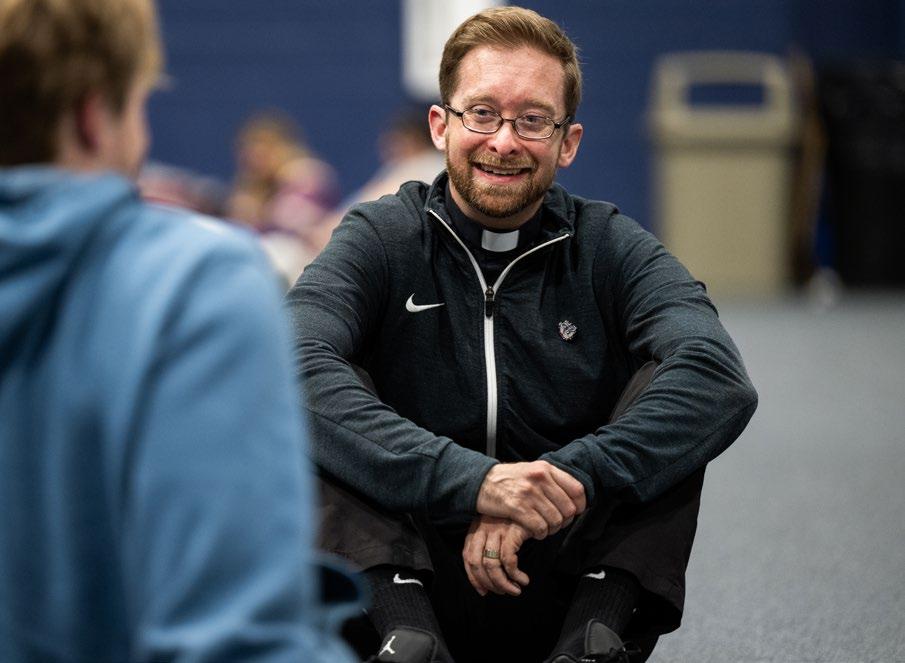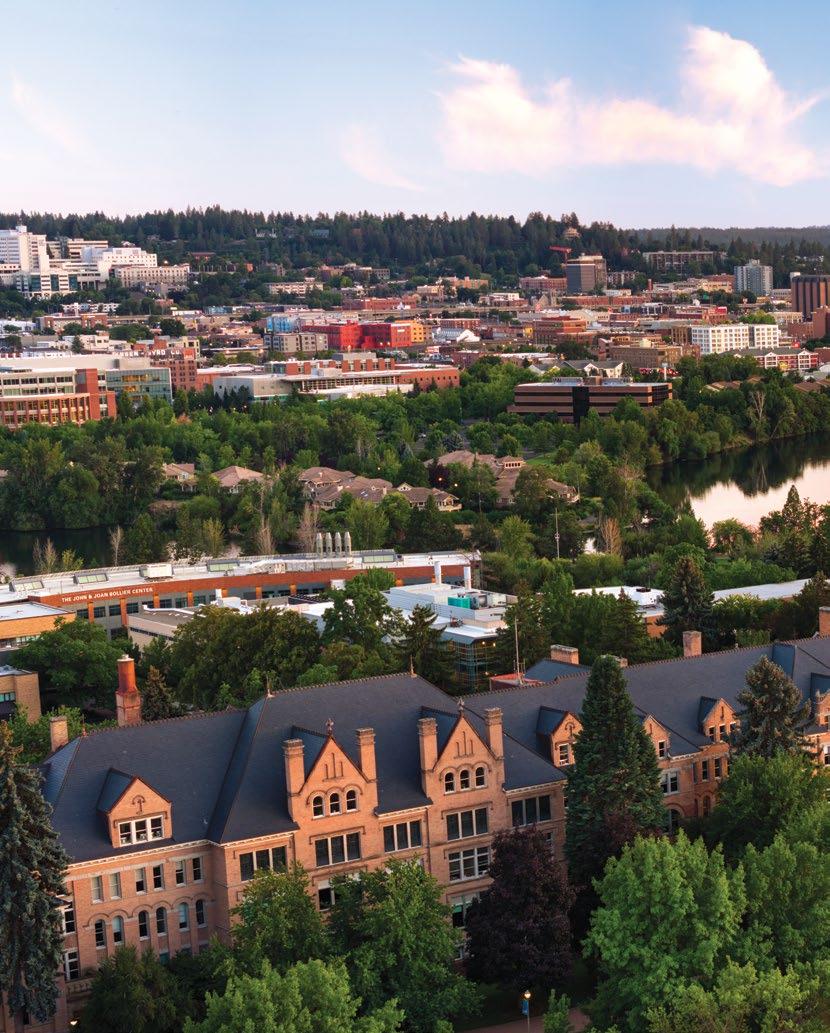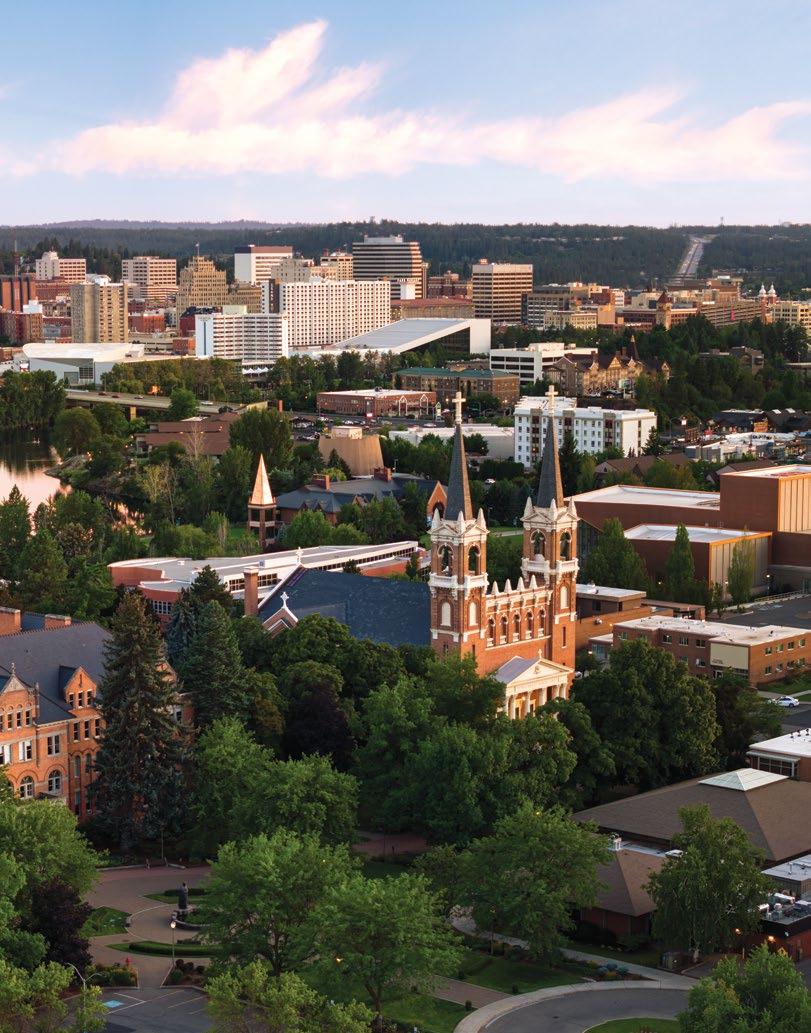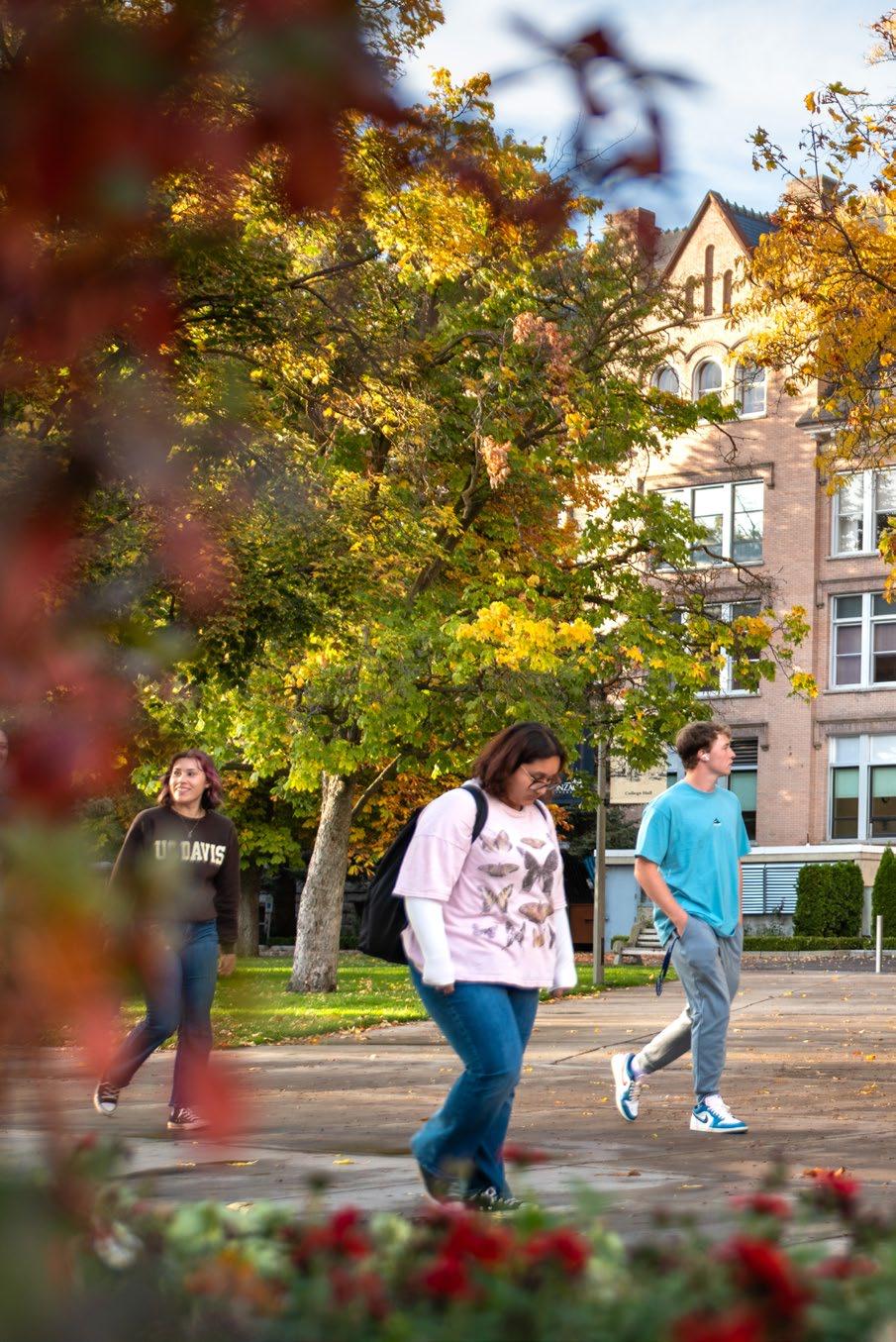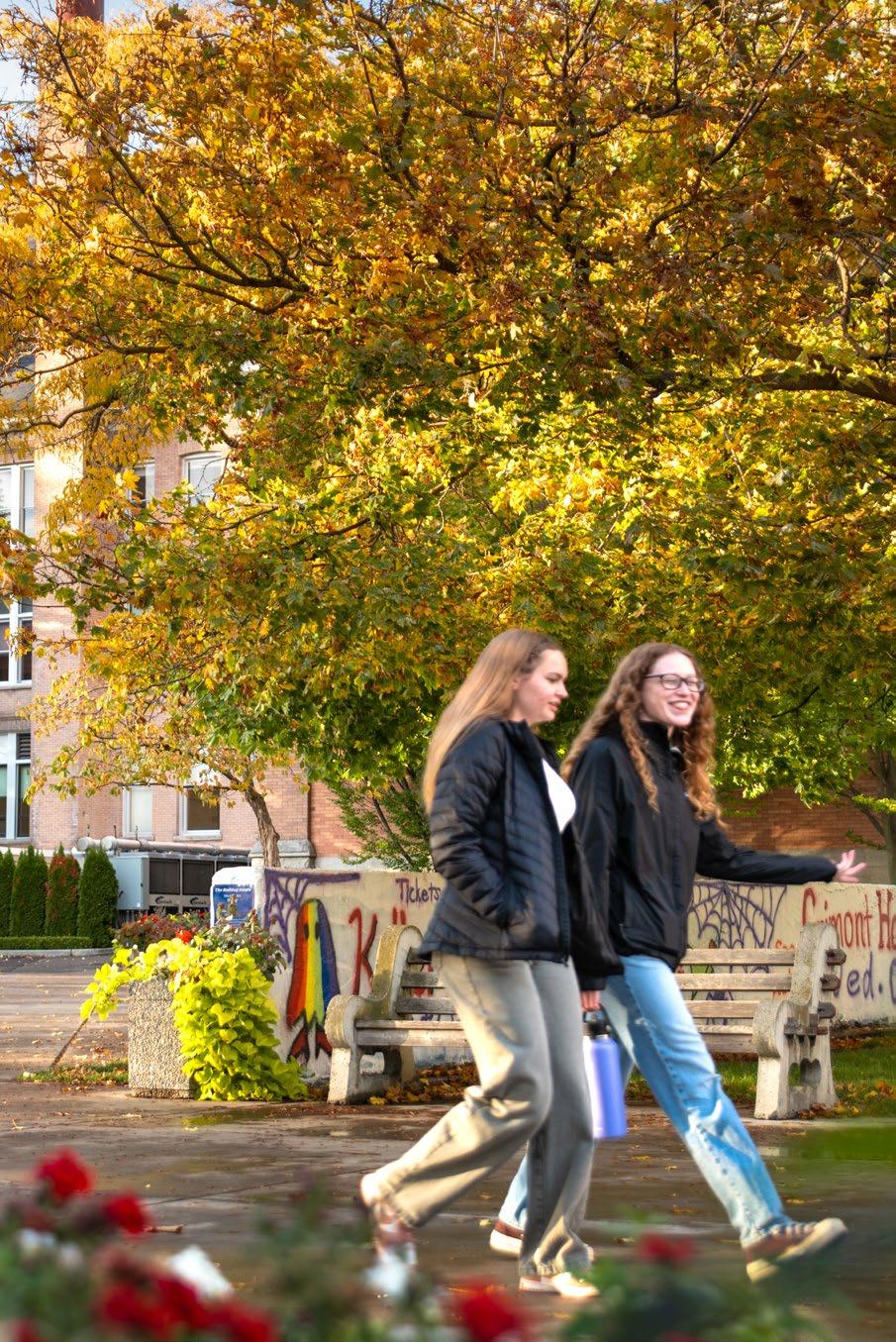

Strategic Plan Actions Update
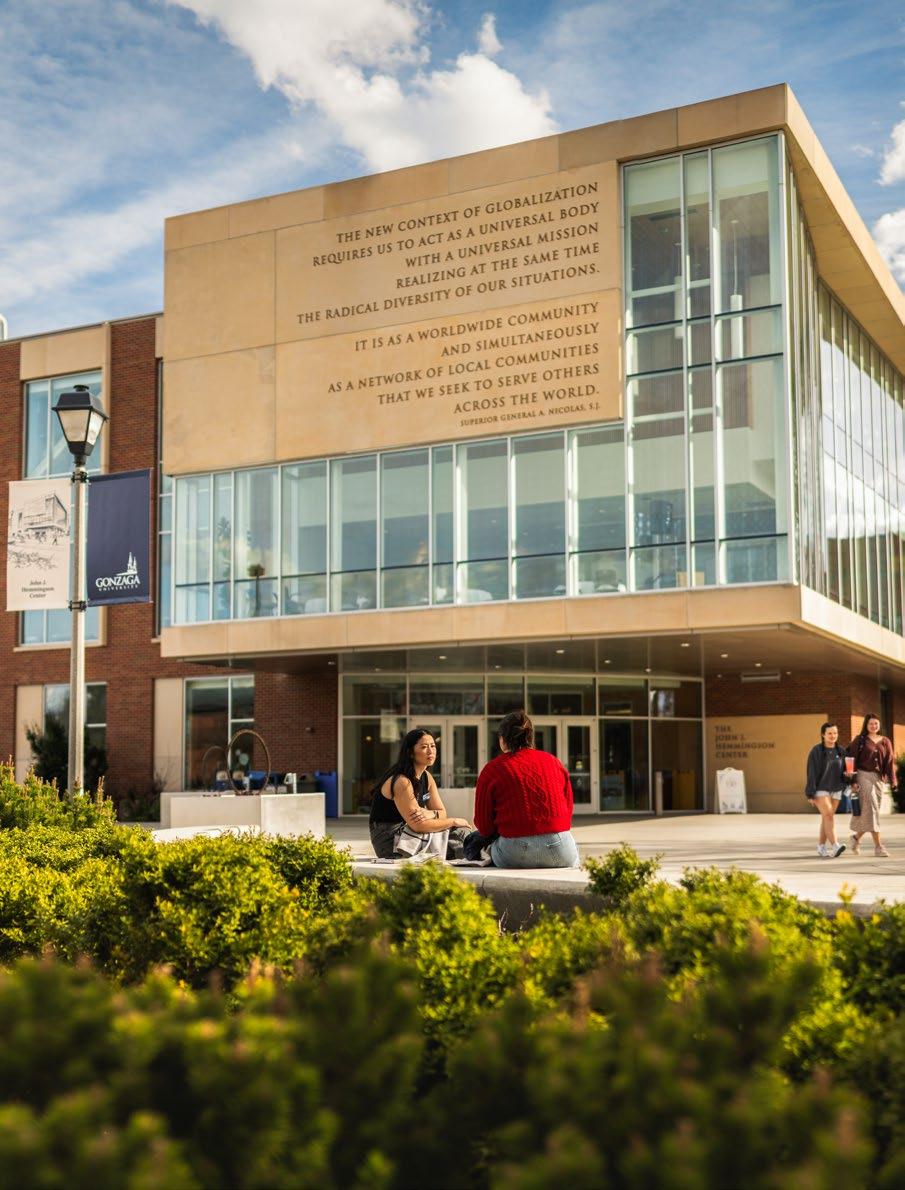
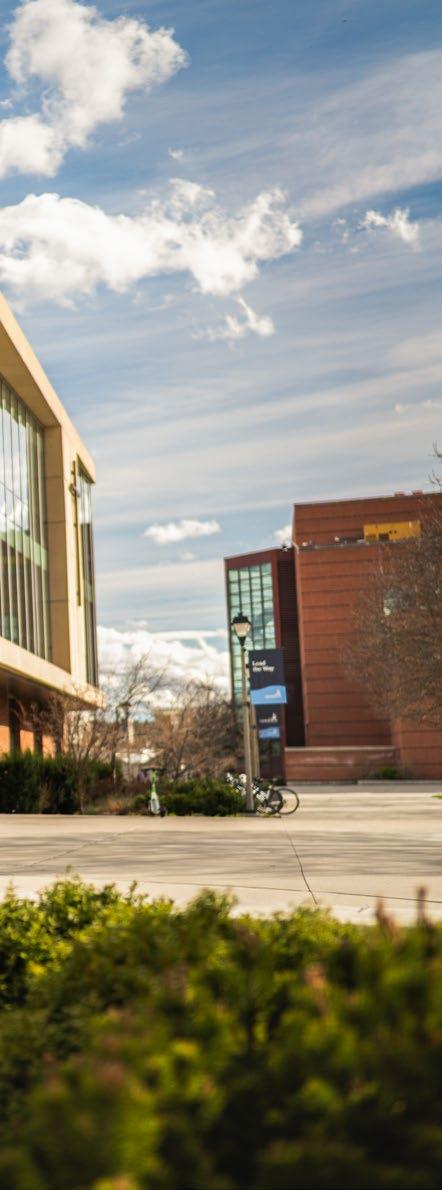
ACTION 1: SCHOOL OF HEALTH SCIENCES
Dean Julie Wolter
Re-craft the School of Nursing and Human Physiology to become the School of Health Sciences.
Connection to: Commitment 2, Goal 1, Develop Academic Programs of Distinction
As the School of Health Sciences (SHS) officially adopted its new name in July 2023, Julie Wolter became Dean, bringing an extensive background in developing health sciences programming at other universities. She has worked with faculty and the community to successfully grow the former School of Nursing and Human Physiology, engaging in change management processes to make the cultural shift successful in this transition within the school and across the University. She has also engaged Marketing and Communications to launch focused marketing efforts about the School of Health Sciences.
Explore other crucial areas of allied health education and research.
Connection to: Commitment 4, Goal 6, Maintain enrollments through program options, enrollment planning
Critical health shortages in the region were identified through market analyses to determine the viability of establishing multiple new health programs within the School of Health Sciences. Among the multiple degree programs identified as ideal fits for Gonzaga students and the community (e.g., health informatics, accelerated nursing, and rehabilitation sciences) a new Public Health undergraduate degree launched in Fall 2024. Additional programs under consideration include both undergraduate and graduate Speech-Language Pathology degrees. The Dean is working with community partners such as Providence Health & Services to create additional training pipelines for health professionals and to further develop faculty scholarship and research opportunities.
Build collaboration not only within the institution, but also with regional partners such as the UW School of Medicine.
Connection to: Commitment 3, Goal 5, Develop partnerships that support regional needs, community engaged learning
Shared faculty, programming and marketing, along with space planning, are crucial areas targeted to support the goal of collaboration and increased awareness of GU as a regional partner with the UW School of Medicine. Interdisciplinary programming and research collaborations are currently being implemented. For example, a faculty member recently hired in the GU Department of Public Health is dually appointed in the UW School of Medicine to direct medical students’ research in collaboration with public health undergraduate students. The Human Physiology department is now sharing space with the new Department of Public Health in the UW-GU Health Partnership Building. Plans are being explored to increase the SHS presence in the University District’s health corridor, including the potential renovation of spaces to expand the GU-Providence Doctor of Nurse Anesthesia Practice program in the UW-GU Health Partnership Building, which will allow the expansion of not only the DNAP program, but also undergraduate nursing enrollments. The Dean envisions a new SHS Center for Health Impact to serve as the centralized hub and infrastructure for health faculty, practitioners and researchers who implement direct clinical services and health science initiatives in collaboration with local community organizations and interdisciplinary partners.
Inform public policy to improve health and wellness in our region, and work for social justice for the marginalized.
Connection to: Commitment 1, Goal 4, Infuse our work with the Commitments of the Universal Apostolic Preferences
Patient and policy advocacy and community impact are priorities for the School of Heath Sciences. Faculty and staff are studying and implementing innovative solutions to address today’s community health challenges and improve the lives of marginalized individuals. For example, as part of Public Health, faculty are working directly with community partners to create new communication strategy plans aimed at promoting community justice work. They have received several grants focused on interdisciplinary partnerships to support health and wellness for under-served populations in the region.
ACTION 2:
INSTITUTE FOR INFORMATICS AND APPLIED TECHNOLOGY
Director Jay Yang
Create an Institute for Informatics and Applied Technology infused with the moral, ethical, and values-based context of our Jesuit identity and priorities.
Connection to: Commitment 4, Goal 7, Drive more efficient and effective processes and technology to enhance student, faculty and staff engagement
The Institute set the vision to position GU as the university of choice for interdisciplinary, humanity-centered learning and innovation in informatics. The team includes the Reisenauer Director, AI engineers, a marketing specialist and Advisory Council. Renovations are underway for the Institute suite and HumanAI Collaboratory on the main floor of the Herak Center.
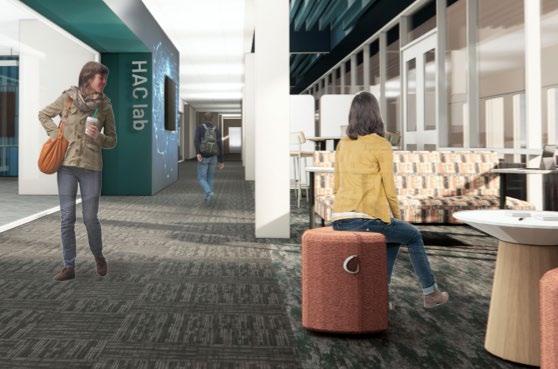
Leverage the Institute to bring together faculty expertise across disciplines for research and to build partnerships with local, national, and international organizations.
Connection to: Commitment 3, Goal 5, Develop partnerships that support regional needs, community engaged learning
The Institute developed five interdisciplinary funding proposals (~6M for Gonzaga): NIST Resilient Aerospace Manufacturing Institute, NSF Safe Small Generative AI Technology, Microsoft AI for Good, AI & Philosophy Conference, AI for K-12, in addition to an NSF grant (~$260K) on AI for cyber training brought to Gonzaga by Director Yang.
In association with partners, the Institute organized a conference on “Value & Responsibility in AI Technologies” on April 3-4, 2025 at Gonzaga with 186 registrations; it was co-sponsored by all GU schools and the College.
Current engagements with regional industry partners include: Avista, City of Spokane Police Department, Drip7, Alphy, Amazon, LaunchPad, McKinstry Manufacturing, and Lakeside Manufacturing to explore impactful learning and innovation opportunities for Gonzaga students and for working professionals.
Collaborate on degree programs and innovative continuing/ executive education building on interdisciplinary faculty strengths centered on informatics with Gonzaga’s Jesuit values.
Connection to: Commitment 2, Goal 1, Develop Academic Programs of Distinction
Working with industry leaders, government, K-12 educators and community leaders, and the IIAT Advisory Council, the Institute explores the social, economic and ethical impacts of AI ensuring that students can contribute to a more equitable and sustainable future.
The Institute worked with the University Core to incorporate AI-infused learning outcomes in introductory English, philosophy, and communication studies courses for all undergraduates.
A comprehensive campus-wide AI action plan focused on academics is underway with Information Technology Services, the Center for Teaching and Advising, and Instructional Design and Delivery.
ACTION 3: INTEGRATIVE JESUIT EDUCATION
Associate Provost Kathleen Jeffs & Vice Provost Kent Porterfield
Through portfolio-based experiences, we will encourage individual student growth, development as leaders, explorations of faith and ethics, service to others, and care for themselves.
Connection to: Commitment 1, Goal 1; Commitment 2, Goals 1, 2, 3, 5, 7; Commitment 3, Goals 2, 3, 4, 6; Commitment 4, Goals 1, 4, 6, 7
Integrative Jesuit Education at Gonzaga for undergraduate students occurs through two developmental phases envisioned as the Actualis program: first and second year is ‘Explore,’ third and fourth year is ‘Engage.’ The categories in the Explore phase are Belonging, Community and Justice; Wellbeing and Flourishing; Integrated and Experiential Learning. The Engage phase includes application and career readiness, scholarship and inquiry, and continued development in areas of formation, including faith and spirituality. An advising and mentoring model is evolving to support students’ ability to articulate their whole-person, Jesuit education by the time they graduate. Leaders are exploring options for something like a comprehensive learner report.
All students will be entered into living-learning communities as part of a formative freshman year experience as well as a sophomore year experience.
Connection to: Commitment 2, Goal 7, Adopt high-impact practices in our pedagogies
There are a wide range of living-learning opportunities available for GU students, some of which connect to academic courses and some of which connect to co-curricular experiences. Faculty fellows are connected to the non-first-year-seminar living learning communities to encourage cross-campus collaborations. Expanding and scaling this project requires a flexible model that includes academic enrichment and holistic experiences that suit students’ desires and interests.
Embark on an ambitious expansion of our residence halls.
Connection to: Commitment 4, Goal 5, Create and maintain welcoming and inclusive spaces
Mantua Hall opened in January 2025, the first new dorm in the schematic for the Second-Year Village.

Embark on an ambitious project of promoting and supporting student wellness and success.
Connection to: Commitment 4, Goal 1, Enhance student success, retention, graduation
As iterative enhancements to the Student Success CRM (ZRM) progress, efforts are underway to onboard early faculty advisors into the system; early adopters are the second wave in the phased approach to leverage and share advising notes, creating a more integrative student experience, and moving the University closer to a 360-degree view of its constituents.
Progress is also underway on the Zags360 initiative, which aims to bring student-athletes a high-touch, interactive experience to support their growth in 8 areas of wellness, including spiritual well-being in support of our educational and Jesuit mission as an institution.
Expand our efforts at global and national study away education, both by bringing Gonzaga students to diverse parts of the globe and within the U.S., as well as exposing students on our campus to diverse learners and educators from all over the globe to Gonzaga.
56.3% of students study abroad AY 2024-2025
50+ countries represented by international students Spring Semester 2025 Spring 2025 / Facts & Figures
ACTION 4: RE-IMAGINE THE LEARNING ENVIRONMENT
Dean Heather James
Foster the learning environment for faculty, staff, and students by re-imagining the Foley Library as an academic learning commons, creating spaces for peer collaboration and for students to receive support via advising and mentoring.
Connection to: Commitment 2, Goal 7: Adopt research-based high-impact practices in our pedagogies; Commitment 3, Goal 4: Develop resiliency, well-being, healthy living, community, and flourishing
Project partners (all area heads for units to be co-located in Foley Library) have completed pre-design with architects and Plant Services. Updates on the early designs and vision were shared with campus in Spring 2025. Partners are gathering input from other stakeholders ahead of new spaces in alignment with the goals of the integrated Learning Commons. Conversations between Foley Library, Student Affairs and Plant Services are ongoing to address a shared commitment to developing spaces that support advising and testing.
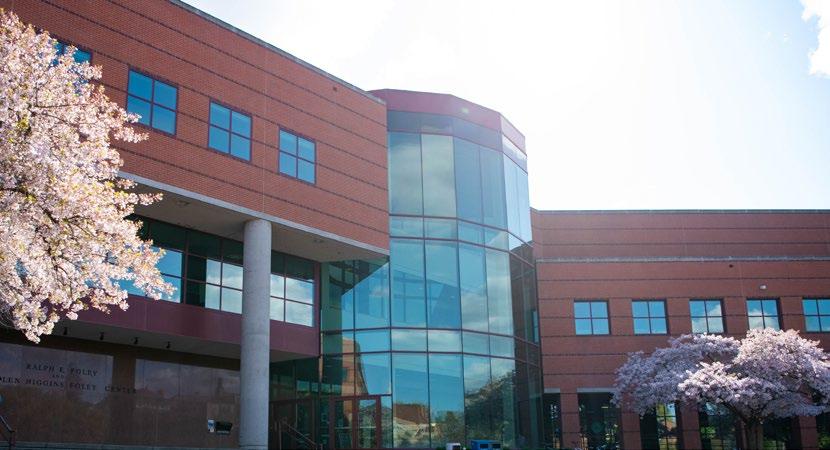
Re-imagine the Center for Teaching and Advising to support faculty in living out the Jesuit mission of Gonzaga throughout their entire career development, through: teaching and advising; research; and development as leaders.
Connection to: Commitment 2, Goal 6: Full-time faculty pursue scholarly, artistic, and professional activities; Commitment 4, Goal 4: Enhance people strategies, systems, and processes enabling faculty and staff to maximize their contribution to the mission
As part of re-imagining the Center for Teaching and Advising, the Teaching Effectiveness Certificate Program launched to support faculty across their career development while intentionally integrating Gonzaga’s Mission and evidencebased practices. Since beginning in July 2024, faculty participation in the program’s micro-credential courses has totaled 117 enrollments. A new Faculty Advising course launched in April 2025, and a Department Chairs Training and the Gonzaga Academic Leadership Program are set to begin in Fall 2025, to further support faculty leadership and professional development.
To guide the Center’s growth, an Advisory Board of 15 members has been meeting monthly to develop a strategic plan that aligns with Gonzaga’s institutional priorities and strengthens faculty support at all career stages and across each of the four pillars of evaluation: Teaching, Scholarly/Creative Work, Advising, and Academic Citizenship. Looking ahead, the Center will host the “Sharing What Works: Effective Approaches to Teaching and Learning” conference in early November, in collaboration with regional partners, providing a platform for faculty to exchange research and best practices in teaching and learning.
Invest in the technology that helps us reach students where they are.
Connection to Commitment 4, Goal 7, Drive more efficient and effective processes and technology to enhance student, faculty and staff engagement Foley staff have enhanced digital learning systems for robust design and delivery processes of Gonzaga’s in-person, hybrid and fully online courses rooted in Ignatian pedagogical principles. Implementation of a CRM will support offices that care for students. As enhancements to the Student Success CRM (ZRM) progress, efforts are underway to onboard faculty advisors into the system; early adopters share advising notes, creating a more integrative student experience, and moving the University closer to a 360-degree view of its constituents. Upgrades are underway to the tools that assess students’ progress to degree completion.
ACTION 5: STRATEGIC ENROLLMENT
Interim Vice President Nate Mannetter
Enhanced marketing, recruitment, and admissions
Connection to: Commitment 3, Goal 2: Enroll and support a richly diverse student body; Commitment 4, Goal 3: Elevate Gonzaga’s market position as among the nation’s premier, accessible academic institutions through effective marketing and communications of Gonzaga’s distinctive attributes and Jesuit values
Enrollment Management is working on enhanced data analytics to support growth and diversity of enrolled students and has hired a partner to benchmark Gonzaga data against national data.
Financial Aid and pricing strategy
Connection to: Commitment 3, Goal 1: We seek to make college accessible
One tangible step toward pricing strategies includes annual graduate pricing studies. While this has not yet occurred for undergraduate pricing, the support from the firm HAI Analytics will assist in creating financial aid strategy annually. The University will continue to have robust conversations about pricing strategies to optimize enrollment, ensuring nursing alignment between price, perceived value, and prospective students and families’ aspirations and needs.
98% of undergraduate students receive scholarships and grants
Gonzaga University Factbook, 2023-2024

Student Success Infrastructure
Connection to: Commitment 3, Goal 4: Develop resiliency, well-being, healthy living, community, and flourishing; Commitment 4, Goal 1: Enhance student success, retention, graduation; Commitment 4, Goal 7: Drive more efficient and effective processes and technology to enhance student, faculty, and staff engagement Gonzaga has made progress in marrying technology (specifically CRM utilization) to practice with the goal of supporting the progression and persistence of the most at-risk students. The Slate CRM is being successfully used in the undergraduate and graduate onboarding of students, and the Salesforce CRM implementation will enhance professionals’ ability to provide students with resources needed to promote whole person support.
Demand-based program and certificate alignment
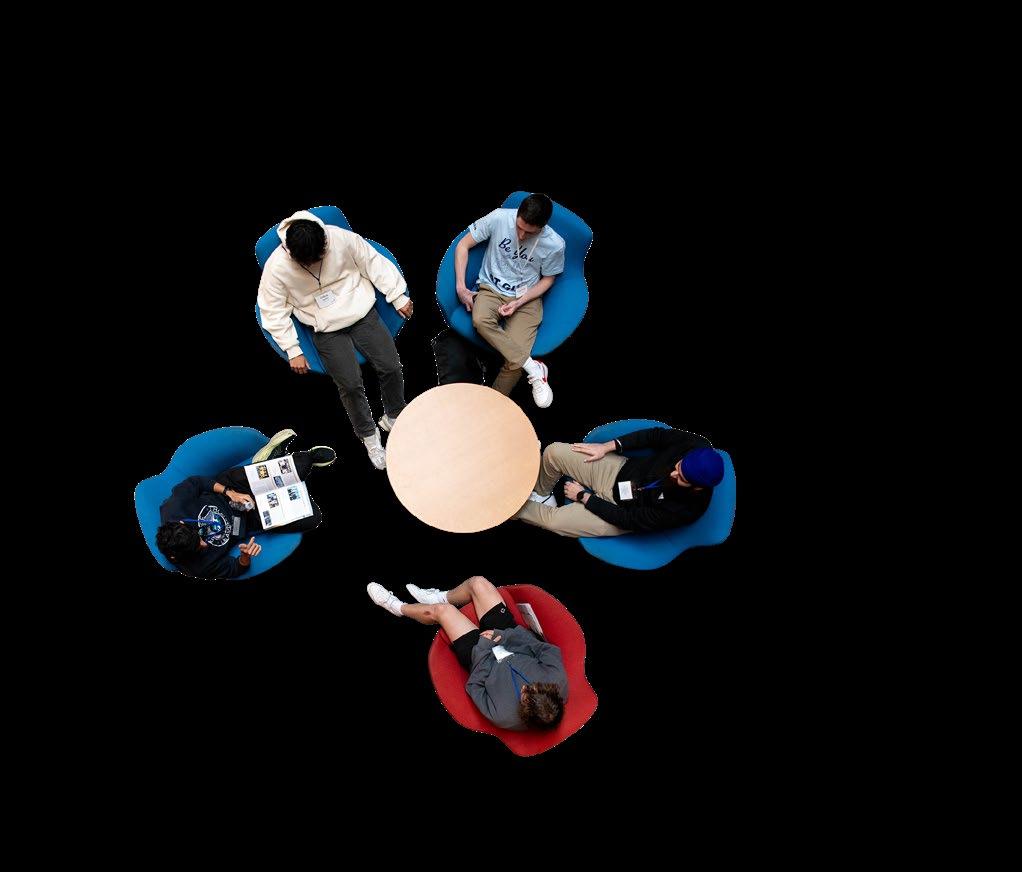
Connection to: Commitment 2, Goal 1: Develop academic programs of distinction
New and refreshed academic programs are aligned to market to prospective student demands, both industrially and organizationally. Accelerated programs, certificates, and non-degree programs continue to be added. Hiring UNITE will bring together a 360-degree holistic relationship with partners to serve GU’s business, health care and community partners.
ACTION 6: INCLUSIVE EXCELLENCE
Chief Diversity Officer Robin Kelley
Recruit, retain, and foster the success of a diverse community.
Connection to: Commitment 2, Goals 4, 8; Commitment 3, Goals 2, 4; Commitment 4, Goal 6
Gonzaga University and the Office of Inclusive Excellence (OIE) won the Insight Into Academia Higher Education Excellence and Distinction (HEED) Award which recognizes colleges and universities that demonstrate outstanding commitment to academic excellence and belonging. OIE built a Faculty Recruitment Workflow to include Search Advocates Community of Practice, and updated the underrepresented minority Postdoctoral Fellowship Program to include mentoring, professional development and social connections.
Nurture an inclusive campus climate and intergroup relationships.
Connection to: Commitment 4, Goals 4, 5, 8
A comprehensive BIAS Team Response Protocol was revised to ensure a welcoming, safe and inclusive campus environment by creating opportunities for restorative solutions, civil discourse and corrective coaching. Inclusive Excellence implemented the National Assessment of Collegiate Campus Climate or NACCC Faculty Survey, and revised sections of the New Employee Experience and the New Faculty Orientation to include more information about belonging and social justice.
Promote inclusive teaching, scholarship, and service so our students will see inclusion as part of their education and formation.
Connection to: Commitment 2, Goal 1; Commitment 3, Goals 2, 3, 4, 5
The Inclusive Excellence Leadership Academy launched to increase the intercultural fluency of faculty, staff, and graduate students. The participants attend workshops taught by University faculty and staff from November to April each year. The participants receive the Inter-cultural Development Assessment tool and complete a cohort project.
Build capacity for inclusion work amongst faculty and staff through training and development.
Connection to: Commitment 1, Goals 1, 2; Commitment 2, Goals 2, 3, 5, 7; Commitment 3, Goal 3; Commitment 4, Goals 3, 4, 7
The second “Solidarity through Diversity: Healing, Strength and Collective Action Symposium,” held May 1, 2025, had over 100 attendees including students, faculty and staff. Diversity.Edu, Personal Skills for a Diverse Campus, is an online training program for employees and staff. The overall completion rate is 75% regular faculty, adjuncts and staff; 87% for new students; 63% for first-year student; 72% for second-years; 77% for third-years; and 66% for fourth-years. A total of 3,520 students have taken the training.
Community relations and partnerships to broaden the impacts of inclusion and justice.
Connection to: Commitment 1, Goals 3, 4, 5; Commitment 3, Goal 6; Commitment 4, Goal 8
Faculty, staff and community members of color and allies attend Cultivating Community Events, created in 2023. The event provides opportunities for colleagues to connect from Gonzaga University, Eastern Washington University, Whitworth University, Spokane Falls Community College, Walla Walla University, Washington State University Elson S. Floyd College of Medicine, and with members from the local community, businesses, and area politicians. Since the program’s inception there have been over 300 attendees.
Develop the University’s infrastructure to assess, report, and ensure accountability in this work.
Each unit has a leader responsible for providing a narrative describing the vision, priorities, progress to date unique to the unit, including significant gains and a qualitative description of unit-level impact of actions taken across the prior year. As of January 1, 2025, 15 divisions, colleges and schools have Unit Inclusive Excellence Strategic Plans for their respective areas. Annual progress reports are due July 15, 2025.
ACTION 7: SERVICE AND ACTION WITHIN OUR COMMUNITY
Assistant Dean Molly Ayers
All academic degrees will include community engaged learning, experiential learning, outdoor learning or global learning.
Connection to: Commitment 2, Goal 3, Student Experiences to deepen understanding of cultures; Commitment 2, Goal 5, Undergraduate students gain skills through experiential learning
The Center for Community Engagement (CCE) assessed the impact of academic and co-curricular service on career pathways. Findings indicate that these experiences result in the following outcomes: Affirmation of Career Choices, Refinement of Career Goals, Increased Interest in Public Service, Impact on Career Direction, Personal Growth and Skills Development, and Commitment to Community Service. The number of course sections with the Community Engaged Learning attribute increased by 23% year-over-year from 102 in 23-24 to 125 in 24-25. The number of students participating in CEL courses increased year-over-year; total headcount increased 15.5% from 1,599 in 23-24 to 1,847 in 24-25. Unduplicated headcount increased 11% from 1,112 in 23-24 to 1,234 in 24-25. Gonzaga Out of Bounds (GOOB) is designed to help incoming students build community, confidence, and interpersonal skills that ease their transition to Gonzaga. All students experience Global Studies through the Core Designation.
Faculty scholarship of engagement is valued.
Connection to: Commitment 2, Goal 7: Adopt research-based high impact practices in our pedagogies.
The revised Faculty Handbook sections on Teaching and Scholarship contain updated language about “the integration of experiential learning, communityengaged learning, or other mission-centric learning into the classroom experience” (304.02 line 755, also 304.03b, line 833 and 841). There is also ongoing collaboration between the Center for Community Engagement and the CTA that faculty can use to gauge the continuum of depth and quality of community engaged teaching and is a resource for faculty applying for promotion and tenure. A Community Engaged Learning micro-credential launched summer 2025.
Strengthen our commitment to Opportunity Northeast, including innovative partnerships with Catholic Charities and exploring a new child development center.
Connection to: Commitment 1, Goal 5: Further develop and enhance partnership initiatives with the Spokane Diocese and other Apostolic partners
Opportunity Northeast (ONE) is a strategic place-based community engagement initiative aimed at improving the quality of life for residents in Northeast Spokane. Launched in response to community-identified needs, it focuses on enhancing educational opportunities, promoting whole health, and fostering community engagement. By partnering with local schools, organizations, and nonprofits, Gonzaga involves students, faculty, and staff in transformative, experiential learning opportunities that address real-world challenges. ONE continues to deepen academic partnerships with the ZoNE (CCE and School of Business Administration), Northeast Public Development Authority (School of Business Administration), and Catholic Charities (CCE, Center for Lifelong Learning, School of Education, School of Business Administration and School of Leadership Studies). This includes exploring a child development center partnership with Catholic Charities, while navigating challenges of identifying funding and a location in Northeast Spokane.
Support partnerships with regional tribal nations.
CCE and the Office of Tribal Relations partnered with Spokane Public Schools to offer Tribal youth an on-campus college experience. A 4-year grant of $100,000 from the Gates Foundation covers this annual Native summer program which started in 2024.
Continue our investment in outdoor learning, modeling for students care for our common home.
Connection to: Commitment 1, Goal 3: Incorporating the call of Laudato Si; Commitment 1, Goal 4, Infuse our work with the commitments of the UAPs
Getting outside and doing actual work with professionals in the field is a very important way to immerse yourself in course material.
Immersive Outdoor Learning (IOL) completed its third year offering outdoor experiential field excursions in partnership with academic departments. This partnership between the divisions of Academics and Student Affairs has led to many impactful learning experiences for Gonzaga University students and is providing valuable outside-the-classroom teaching opportunities for our faculty. Assessment with students continues to demonstrate the impact of IOL courses on student learning.
I was able to learn how to do something I wouldn’t be able to comprehend as well in a classroom.
ACTIONS 8 & 9: HUMANISTIC INQUIRY
AND IGNATIAN DIALOGUE
Core Director and Professor Ann Ciasullo
Connection to: Commitment 1, Goal 4: Infuse our work with the commitments of the Universal Apostolic Preferences; Commitment 2, Goal 8: Foster community, trust, and confidence through shared governance; Commitment 3, Goal 4: Develop resiliency, well-being, healthy living, community, and flourishing
Because of the overlap in mission and vision, Actions 8 & 9 are being re-imagined as a combined action. The tentative new title of this combined Action is the Institute for Humanistic Inquiry and Ignatian Dialogue.
An Opportunity for Distinction
In our contemporary world, one characterized by rapid technological advancements and an increasingly polarizing political climate, GU faces many challenges and opportunities: authentically connecting with others; listening with curiosity and openness; recognizing the value of working collaboratively and across difference. As a Catholic, Jesuit, humanistic university, Gonzaga is uniquely positioned to lead the way in modeling these practices. Through the establishment of the Institute for Humanistic Inquiry and Ignatian Dialogue, Gonzaga University will distinguish itself as a hub for interdisciplinary dialogue and civic engagement. The opportunities provided by the Institute — public lectures on pressing social issues, support for student-faculty research projects, and faculty training and mentorship — will further distinguish Gonzaga University as a premier, mission-driven institution.
Mission Statement
The Institute for Humanistic Inquiry and Ignatian Dialogue promotes and supports opportunities for dialogue and discernment through teaching, service, research and the public dissemination of knowledge in the tradition of a Jesuit, Catholic and humanistic education. The Institute builds upon the strengths of the Gonzaga Mission by modeling civil discourse through academic and public programming and through humanities-informed interdisciplinary work among students, faculty, staff, and community members at the local, regional, and global levels. Centered in an Ignatian commitment to the pursuit of truth and common good, the Institute produces collaborative public projects and sponsors programming and events that benefit both Gonzaga and greater Spokane community.
Vision Statement
As a Catholic, Jesuit, liberal arts institution, Gonzaga is committed to the promotion of a humanistic vision of the world. This vision is deeply interested in the qualities, values, and practices that define what it means to be human and provide insight into why we do the things we do. Humanistic inquiry helps people understand the darker sides of humanity and challenges individuals to find understanding amid avarice, exploitation and fear. It helps us understand what we ought to do rather than merely what we can do. Finally, it promotes a deeper understanding of ourselves and others — and all the connections in-between. In this present moment — one defined by political tribalism and by ever-expanding digital and technological innovation— humanistic inquiry and civil dialogue is more important than ever.
Guiding Themes
Under the supervision of a faculty director, reporting to the Office of the Provost, the Institute will promote three interrelated themes, informed by and in support of Gonzaga’s Mission:
The Common Good: Advancing the Catholic, Ignatian tradition by discerning truth, oriented toward solidarity and social justice, through community engagement and programming
Civil Discourse: Providing opportunities for campus-wide and civic public dialogue and collaboration on the most pressing topics of our time: from politics, to social issues, to theological and philosophical questions that span generations
Engaged Discernment: Fostering humanistic, interdisciplinary, campus-based and public-facing teaching and research that engages with and serves the Gonzaga community and the wider Spokane region
With these three themes as guide posts, the Institute will undertake projects in civic dialogue, public humanities, oral history, and human-centered technology. These projects will range from public-facing, student-faculty undertakings around pressing contemporary issues to productive partnerships with local agencies, Native nations, community organizations (like Opportunity Northeast), non-profits, and local business and government. Inspired by centuries of Jesuit education and inquiry, the Institute will advance dialogue, inspire creativity, and foster a greater understanding of our shared humanity. Imagining and building a world oriented towards the benefit of all is the fruit of engaged discernment — and at the heart of GU’s Mission.
ACTION 10: INSTITUTE
FOR CLIMATE, WATER, AND THE ENVIRONMENT
Director and Professor Brian Henning
Create a nationally recognized Institute for Climate, Water, and the Environment dedicated to understanding and responding to climate and other environmental crises to realize a just and verdant world.
Connection to: Commitment 1, Goal 3, Incorporating the call of Laudato Si; Commitment 1, Goal 4, Infuse our work with the commitments of the Universal Apostolic Preferences
In the 2023-2024 year, more than 2,300 people from 44 states and 11 countries registered for 12 events and over 8,100 people viewed a growing online library of recorded events. The Institute generated an estimated publicity value of $15.5 in media. 176 K-12 teachers participated in climate workshops and Gonzaga undergrad Climate Literacy Fellows engaged with 1,797 K-8 students in Spokane. The Institute was awarded $1.38M in funding.
Staff envisions a transition to integral Earth-human relations characterized by thriving, equitable human societies within flourishing ecological communities. This is a multi-generational project. At present, the Climate Institute is well-established, but vulnerable to changes in federal priorities and donor interests. For long-term viability, the Institute needs an endowment of at least $20M.
Recruit faculty who will lead conversations and pursue competitive and compelling scholarship dedicated to understanding and responding to climate and other environmental crises to realize a just and verdant world.
The Climate Institute routinely shares its research in local, regional, and national presentations and publications. A co-authored article in The Conversation, “Saving Lives from Extreme Heat,” garnered 17,728 reads.

Foster meaningful student outcomes, experiential learning, and community engaged learning opportunities that enable our students to be leaders of purpose and agents of change.
University Ministry trains small group leaders, retreat leaders, and a monthly leader formation cohort for any student who desires to develop faith-based leadership skills.
Since 2016, the Cataldo Project has engaged with faculty from across campus to help them explore ways to infuse climate and sustainability concepts into their teaching and scholarship. To date, 91 faculty from 35 disciplines have participated, with an annual estimated impact on 6,200 (nonunique) students per year.
The Institute is pursuing AASHE STARS Gold rating to maintain and support alignment with higher ed benchmarking, including making counts of the number of courses with content relevant to sustainability.

ACTION 11: INTERCOLLEGIATE ATHLETICS
Deputy Director
of Athletics
Shannon Strahl
Strengthen the durability and competitiveness of GU’s Athletic programs.
Connection to: Commitment 4, Goal 2: Continually manage operating revenues and expenses to execute our mission; Commitment 4, Goal 3: Elevate Gonzaga’s market position as among the nation’s premier, accessible academic institutions through effective marketing and communications of Gonzaga’s distinctive attributes and Jesuit values
On October 1, 2024, Gonzaga was formally welcomed as a member of the Pac-12 Conference effective July 1, 2026.
Prior to the 2024-25 basketball season, the season ticket structures for both men’s and women’s basketball were modernized in line with industry best standards, constituent feedback and the evolving landscape of intercollegiate athletics.
Prioritize transformational outcomes in the classroom, in competition, and in the community.
Connection to: Commitment 1, Goal 1: Ensure that all students are afforded structured opportunities for mission education, spiritual development, and faith formation; Commitment 3, Goal 3: Foster student leadership through exploration and service; Commitment 3, Goal 4: Develop resiliency, well-being, healthy living, community, and flourishing; Commitment 4, Goal 3: Elevate Gonzaga’s market position as among the nation’s premier, accessible academic institutions through effective marketing and communications of Gonzaga’s distinctive attributes and Jesuit values
Two Gonzaga programs won regular-season West Coast Conference (WCC) Championships (Women’s Cross Country and Women’s Basketball), and Men’s Basketball earned the WCC’s automatic bid to the NCAA championship as the WCC basketball tournament winner.
Women’s Cross Country earned a team bid to the NCAA national race, and Men’s Cross Country sent one individual qualifier. Men’s and women’s basketball continued their streaks by both earning post-season bids –the men’s team with its 27th-straight NCAA appearance and the women advancing to the quarterfinals of the Women’s Basketball Invitational.
Finally, Men’s and Women’s track sent a combined program-best ten individuals to the first round of the NCAA Outdoor Track Championship with two women student-athletes earning a spot at the national finals in Eugene.
Student-athletes and coaches earned several national awards for their outstanding performance including Academic All-American and All-American Honorable Mention accolades for Women’s Basketball standout Yvonne Ejim. Mark Few, head Men’s Basketball coach, earned the 2025 John R. Wooden Awards “Legends of Coaching” Award. Gonzaga student-athletes boasted a Graduation Success Rate (GSR) of 96% and Academic Progress Rate of 992 (out of 1000), the two NCAA metrics for academic success.
During the spring semester, GU student-athletes combined to post a department 3.49 grade-point average, marking the 19th consecutive semester with a departmental GPA above a 3.30 and 11th above a 3.45.
110 student-athletes earned President’s List Honors (3.85 semester GPA or higher), which ranks second all-time, and 93 earned Dean’s List Honors (3.5-3.84 semester GPA), for a total of 203 honorees. Additionally, 44 Bulldog student-athletes earned a perfect 4.0 GPA.
Student-athletes have volunteered 3,152 hours in the community with 98% of student-athletes participating in department-sponsored community outreach events.
Through Zags360 the University continues to deepen its commitment to activate student-athletes’ learning and growth, accompany them in and out of competition, and empower them to achieve lifelong wellness. A full-time project manager was hired to continue this donorfunded initiative through ongoing programming and a data-driven pilot. Fundraising efforts continue in the hopes of making the program sustainable and scalable.
ACTION 12: AFFIRMING OUR DEFINING RELATIONSHIPS
Vice President for Mission Integration Ellen Maccarone
The Jesuits and the University co-exist in an active, vibrant relationship as part of a worldwide community.
Connection to: Commitment 1: Goal 1, 2, 3, 4, 5; Commitment 3: Goal 3, 4; Commitment 4: Goal 4.
The Office of Mission Integration is affording structured opportunities for mission education; developing mission identity into all aspects of University life; incorporating the call of Laudato Si; infusing work with commitment of the Universal Apostolic Preferences; and developing partnership initiatives with the Spokane diocese and apostolic partners.
Gonzaga’s history is rooted in the foundational work of the Jesuits of the Northwest, which involved entering into relationship and ministry with the Native American tribes of the region. The University also sees itself as deeply intertwined with the City of Spokane and the Inland Northwest.
Deepening a commitment to the Catholic Diocese, Opportunity Northeast (ONE), Gonzaga Family Haven, the CORE Initiative of US West, and the Office of Tribal Relations’ ongoing partnership work includes Salish language revitalization. In June 2025, Gonzaga hosted the Native Forward Empowering Scholars Summit. Native Forward is the largest direct scholarship provider for Native scholars.
In 2025 GU also continued its close collaboration with Gonzaga Prep, St. Al’s parish, St. Al’s elementary school, SEEL-Spokane, the new Chief Mission Officer + 1 initiative, and ongoing support of the Nazareth Guild.

Gonzaga will continue to create ways of honoring and deepening these relationships by expanding existing partnerships that reflect authentic efforts to define needs and priorities as we strive to live in healthy relationship, despite instances or traditions that may have caused historical harm to individuals or groups.
University Ministry is collaborating with Jesuits West and the Ignatian Solidarity Network to find functional partnerships to build a sustainable future of longterm networks.
Mission Engagement staff continues to develop and support programs for faculty and staff mission formation. By the end of calendar year 2024, 70 faculty and 50 staff members had completed at least one year of formation. University Ministry likewise has expanded and re-conceptualized programs for student formation, and supports ongoing efforts and collaborations with faculty for mission-informed educational offerings.
